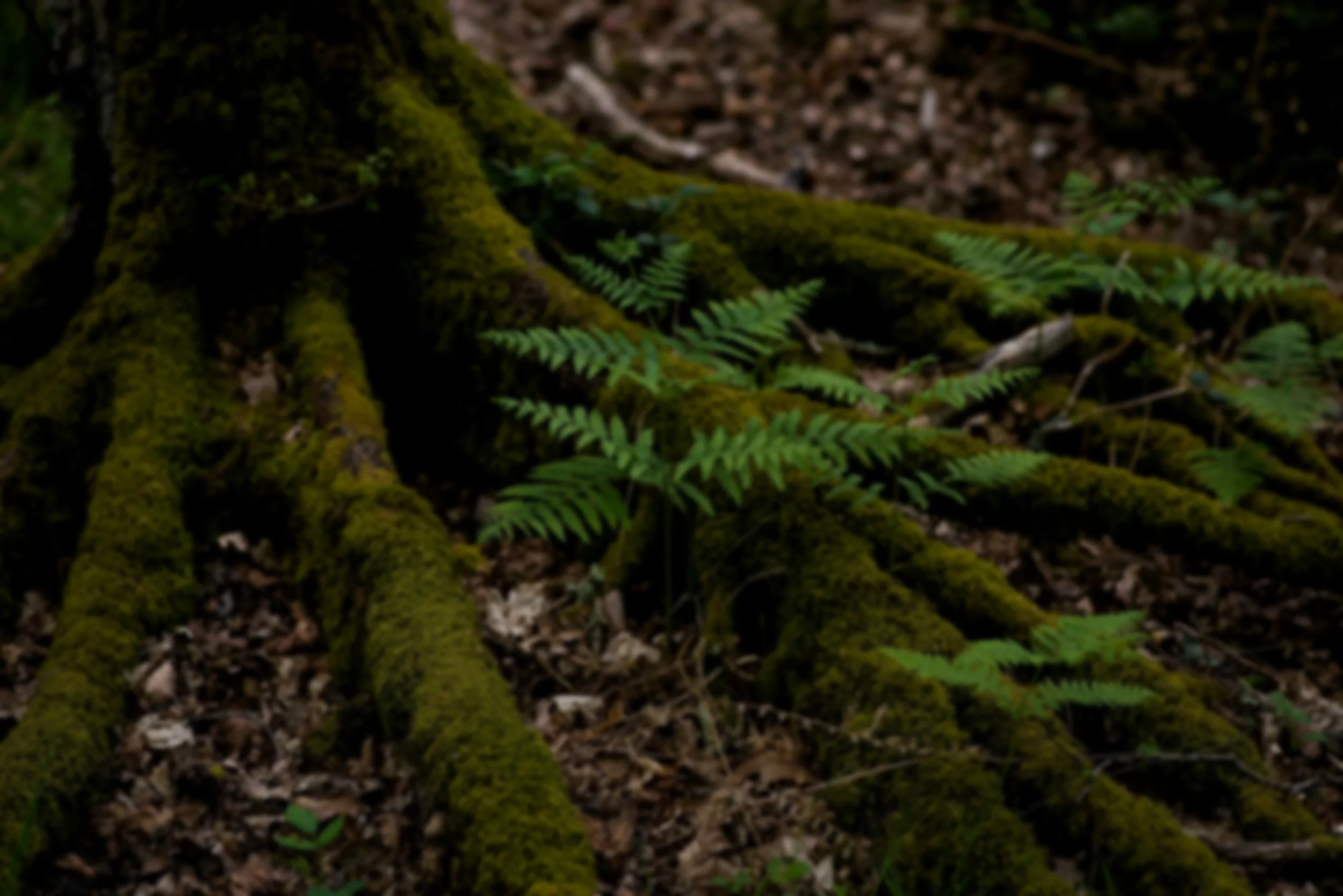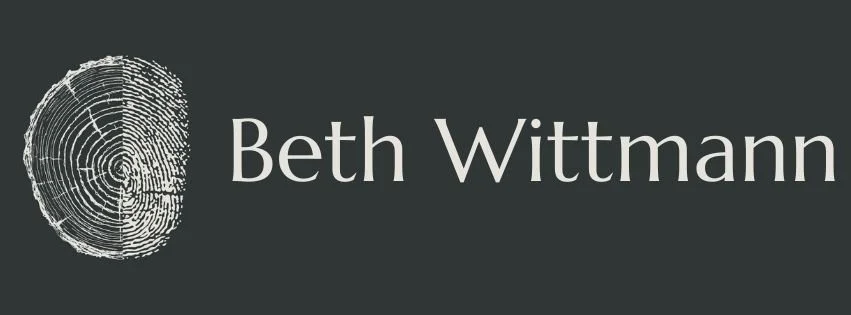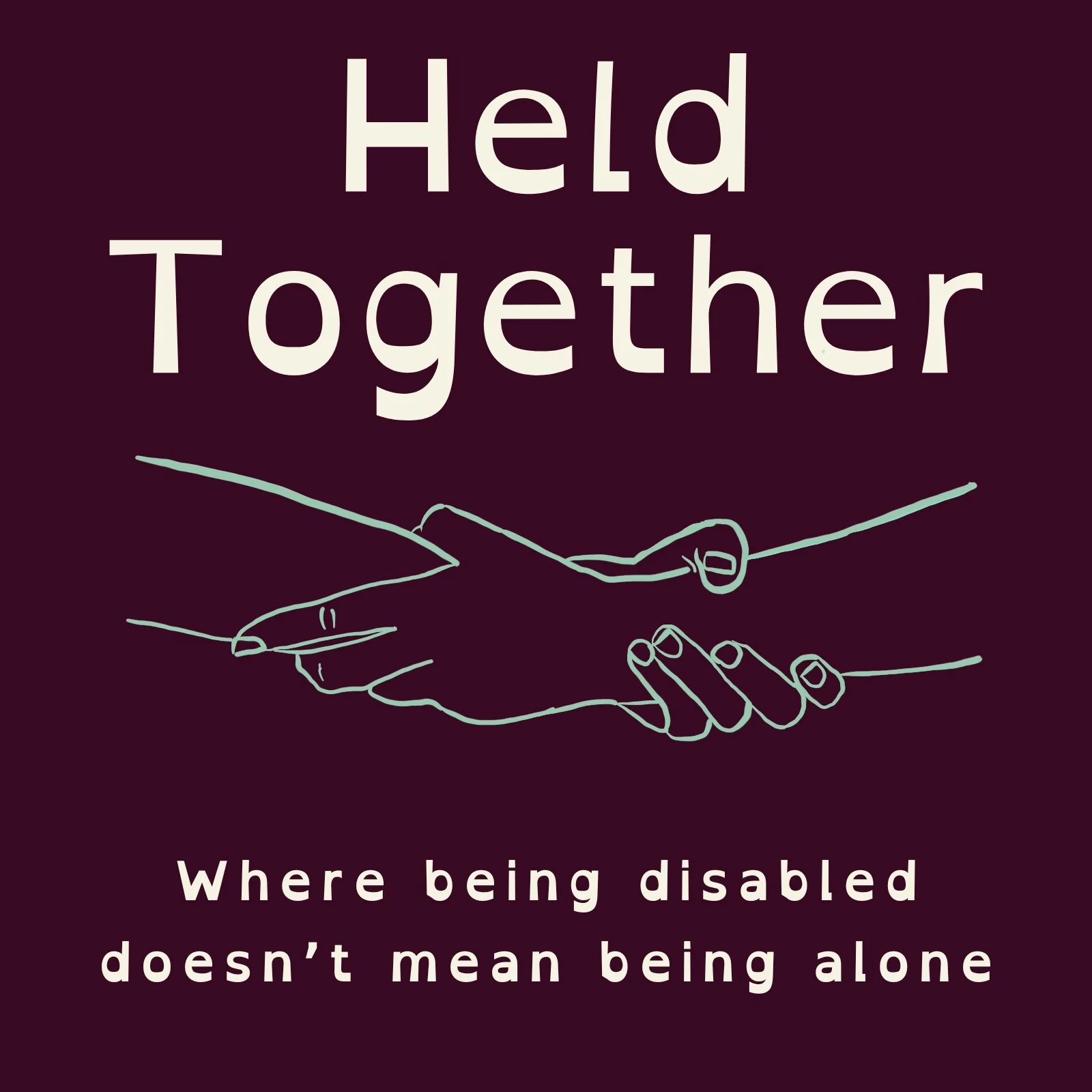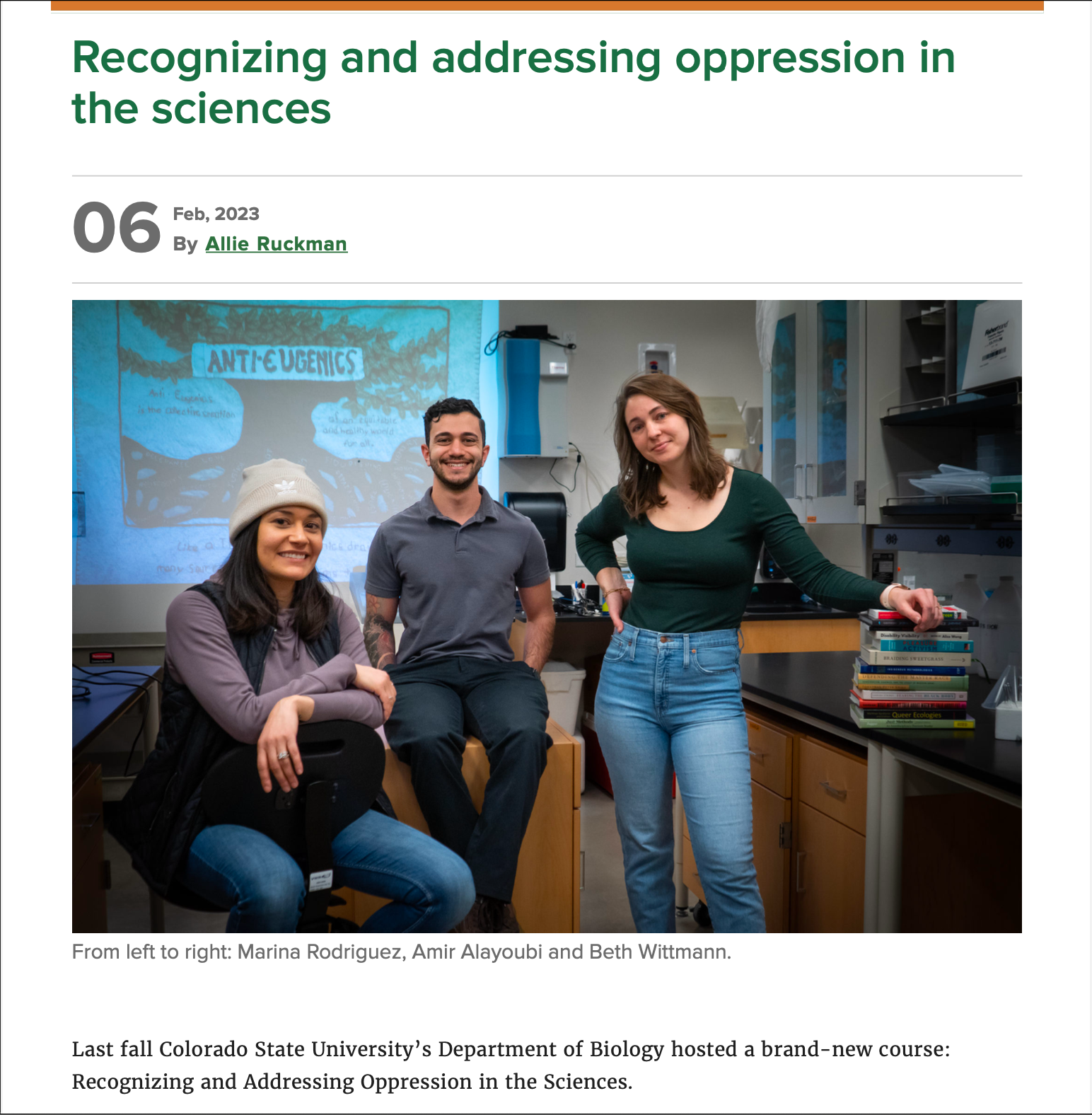
“A people without the knowledge of their past history, origin, and culture is a like a tree without its roots.”
— Marcus Garvey
Research
Publications
Wittmann, B., & Garrity, D. (2025). Sick of the City: Unpacking the Fat Body Politics of Wilderness. Environment and History, 1–23. https://doi.org/10.3828/whpeh.63861480345888
Martin, D. J., C. R. Bycenski, B. A. Wittmann, D. L. Jacobs, J. R. Milford, C. L. Aldridge, and L. L. Bailey. 2015. Lampropeltis holbrooki, Speckled Kingsnake: Geographic Distribution. Herpetological Review 46(1):62.
In Review
Eddy S. L., S. Ahler, E. March, L. Gutierrez, T. Schlechter, O. Turner, B. Wittmann, A. K. Lane, A.M. Aramati Casper. “There is a Place for Us Here”: Exploring Narratives Supporting Students with Queer Genders in Biology Courses"
Wittmann B., G. Poitra, J. Schmidt, D. Garrity, L. Schneider. “I wanted to have some sort of solution”: Experiences of neurodiverse graduate students in STEM
Held Together Live Events and Podcast
A podcast and project about disabled life, care work, and the everyday magic of interdependence. From their bed, Xander Peer Keller, invites you into conversations that are intimate, messy, and beautiful about the relationships that sustain their life and create their care web.
Click here to learn more about what a care web is.
We explore how pain can become a portal, how queerness and disability carry their own magic, and how being held together is more powerful than holding it all alone. Live virtual events with guests are recorded and produced as podcast episodes.
Inclusive and Innovative Social Justice Pedagogy
In the Fall of 2022 at Colorado State University, Beth and two fellow graduate students, Marina Rodriguez and Amir Alayoubi (pictured left), ran their course about social justice and science for the first time.
After hearing the desires of biology graduate students to explore social justice at a deeper level in the spring of 2021, Beth put together a syllabus and asked Marina and Amir to help create a new graduate course. They co-developed the class material over the summer and had about 20 students from all different STEM departments sign up for that first fall.
In 2025, Beth is co-instructing the course for the 4th time and maintaining a space for the deep exploration of systems of oppression in STEM, inclusive pedagogy, accessibility in practice, community building, and activism.
Herd Mentality Guest Lecture
Watch the first 3 minutes below:
US conservation history is typically retold from a Western perspective and has established iconic figures as founders who came to prominence during the conception of the conservation movement. However, another immensely impactful movement was growing concurrently in the US, eugenics.
In this interactive lecture, the historical conservation figures who supported eugenics are profiled to expose how eugenics and conservation both aimed to engineer a future in which white American settlers would dominate the land through a logic of elimination. I argue that eugenic logics have always been and continue to be a part of the conservation movement.



